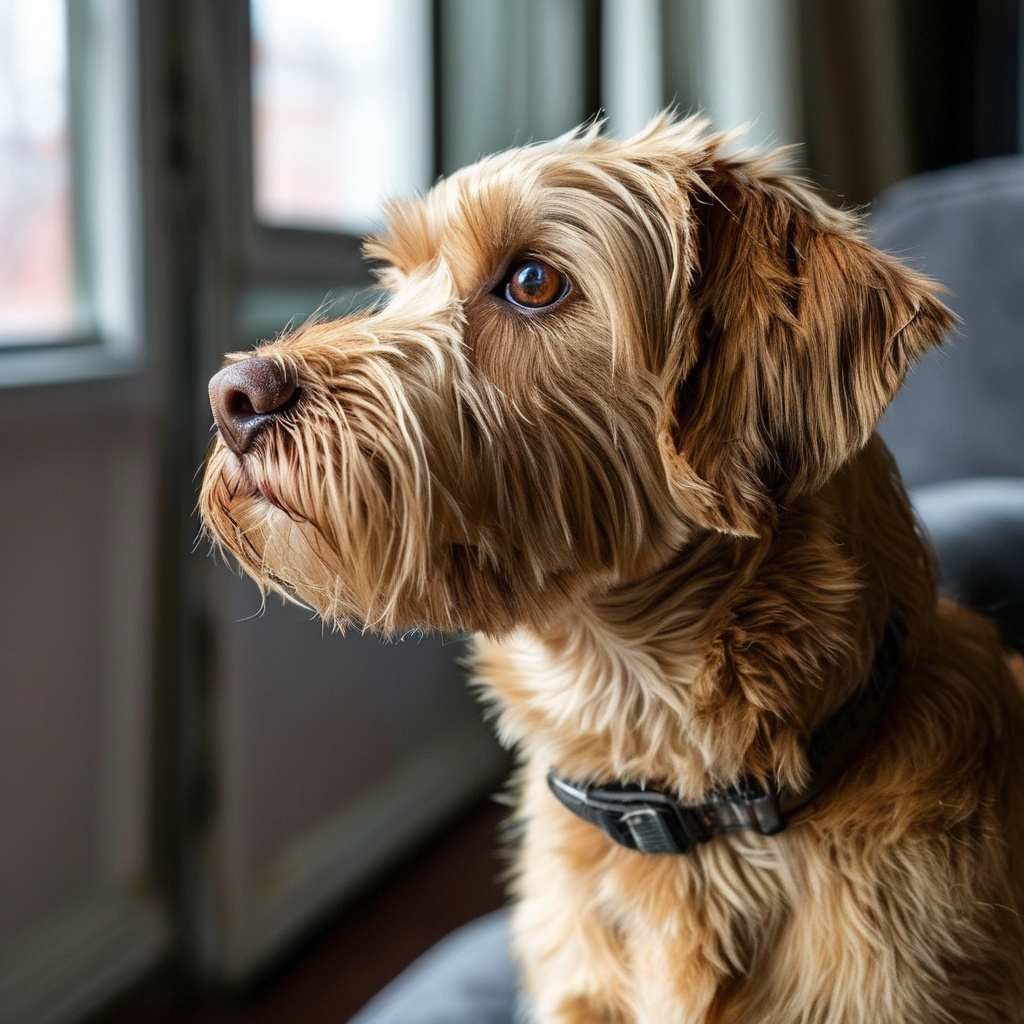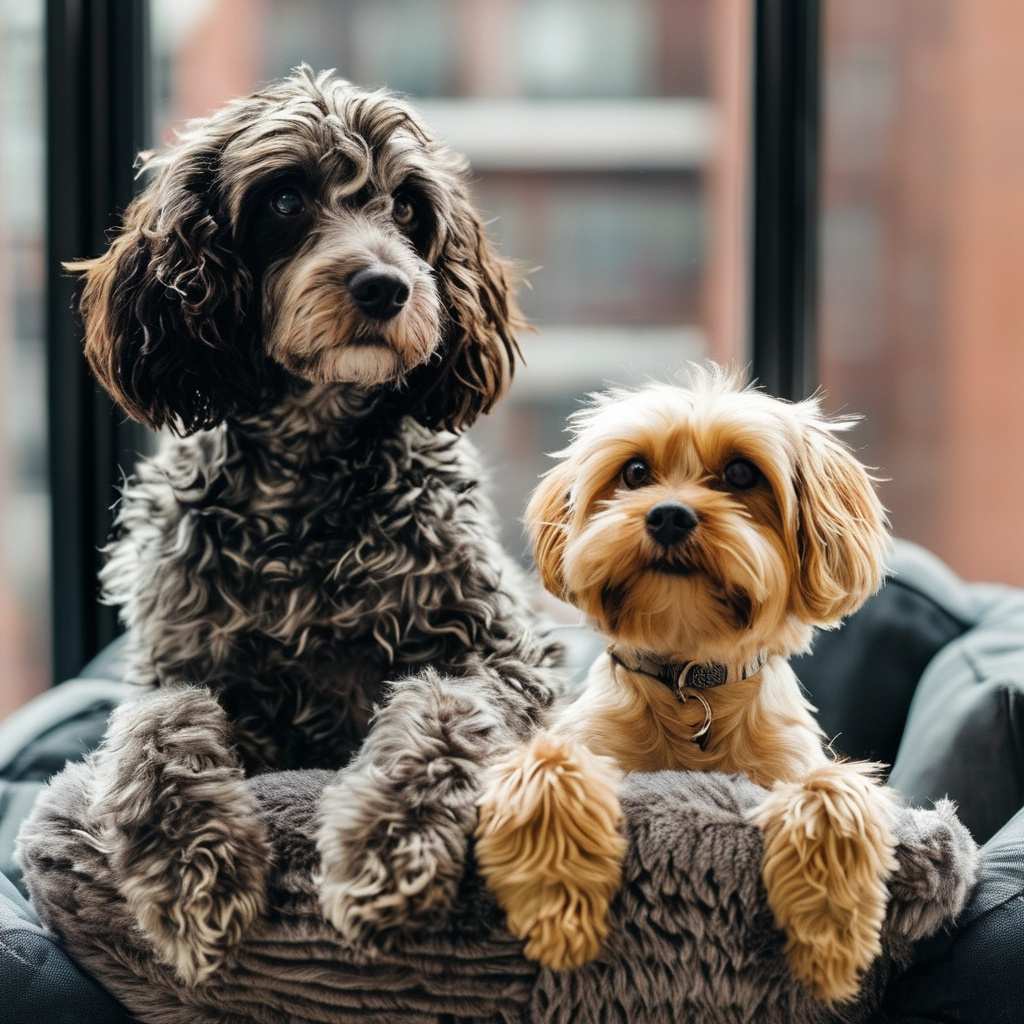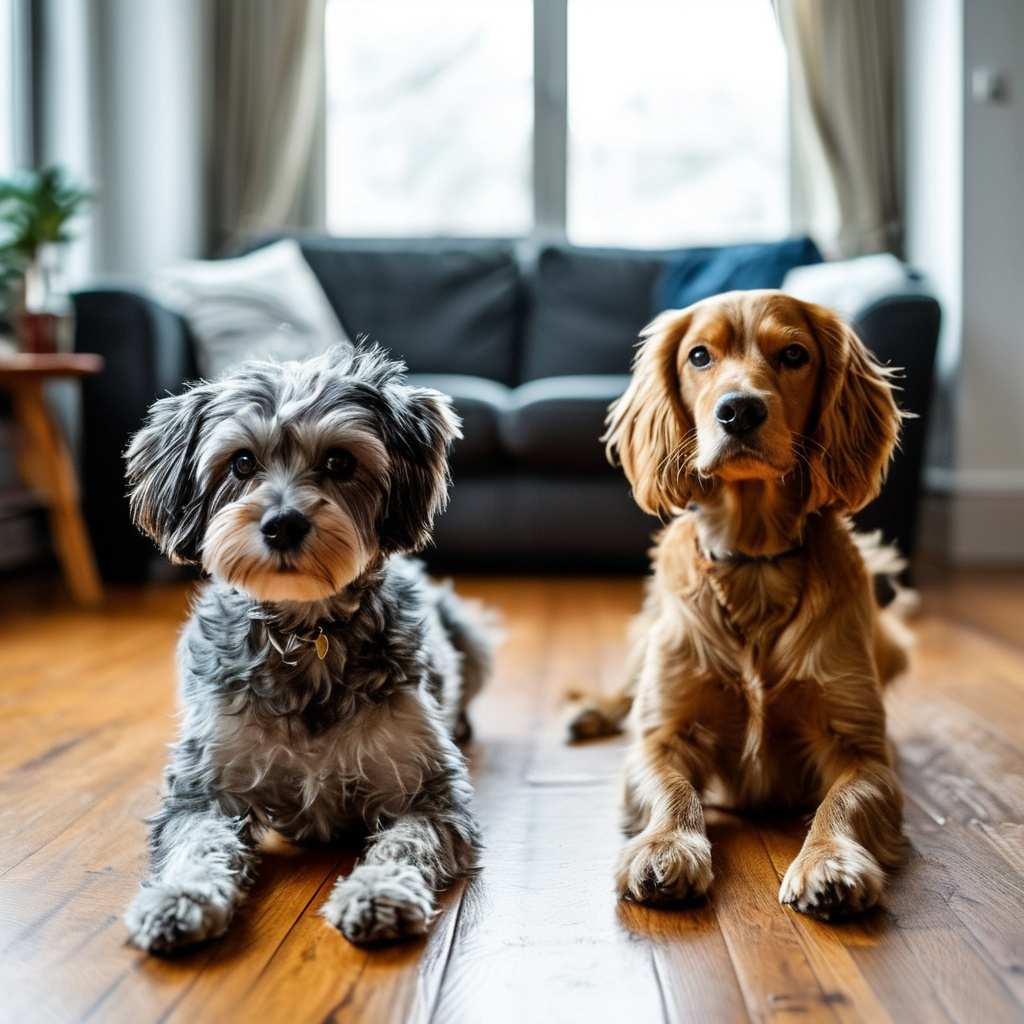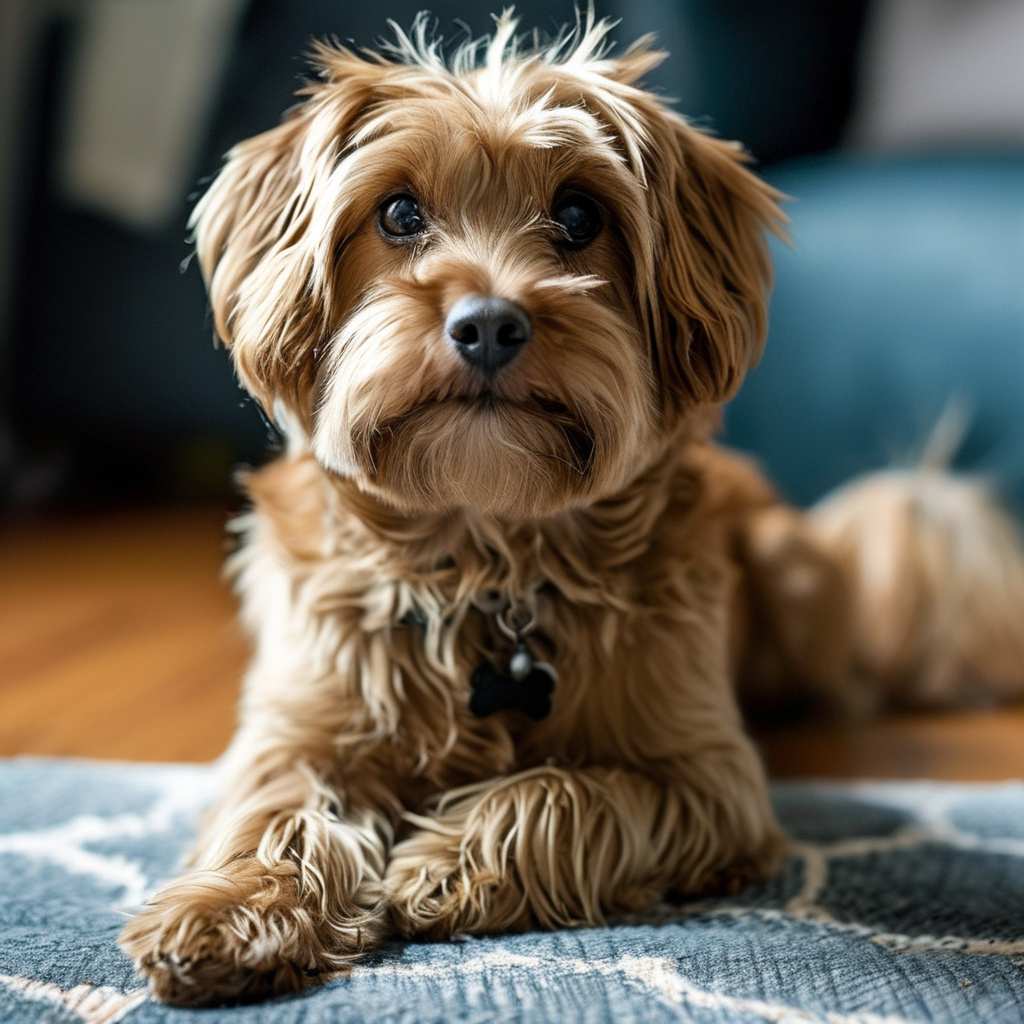
Introduction:
Many people believe that having a dog in an apartment is difficult, but this misconception overlooks the fact that certain dog breeds adapt well to smaller spaces, as long as their physical and emotional needs are met. With proper exercise, training, and care, dogs can thrive in apartment environments. It’s crucial to choose a breed that matches your lifestyle and be mindful of the dog’s activity levels, social needs, and grooming requirements. This article explores the best dog breeds for apartment living, addressing the common concerns of owners and neighbors alike.
Related Post: Choosing the Best Dog Treats: A Guide to Healthy, Natural Options for Your Pet
Is a dog in an apartment building a good idea? We often encounter people who are opposed to such a solution. Nothing could be further from the truth, however, as there are breeds that are ideal for apartment living, provided they get a daily dose of exercise.
 People who are away from home for long periods of time train puppies to relieve themselves on absorbent mats. Sometimes, pets are taught to go outside every 2 hours. In this way, dogs can become accustomed to any type of apartment life. However, the dog must have physical stimulation appropriate to its breed and age. It will not feel comfortable even in a large house if the owner does not meet its basic needs.
People who are away from home for long periods of time train puppies to relieve themselves on absorbent mats. Sometimes, pets are taught to go outside every 2 hours. In this way, dogs can become accustomed to any type of apartment life. However, the dog must have physical stimulation appropriate to its breed and age. It will not feel comfortable even in a large house if the owner does not meet its basic needs.
Related Post: The Ragdoll Cat: A Gentle Giant with a Mysterious Past
Small dogs in an apartment – the most popular breeds
Some dog breeds, mostly small ones, are increasingly being purchased for apartments. Unfortunately, they are often not well suited to a small space. They can be very noisy, which is why neighbours complain. Fortunately, there are many breeds to choose from, including some that are ideal for very small spaces.
The French Bulldog, better known as the American Bulldog, is a common choice today, especially among young people. This type is playful, shows off its tricks, and doesn’t really need much exercise. It is especially recommended for families with children and elderly people who lead a peaceful lifestyle. This dog likes any sofa, so people who love sports and outdoor activities should not choose it. The Bulldog shows a friendly attitude towards other dogs (provided the socialization process is carried out correctly), and its noise level is described as moderate. You could say it is the perfect dog for the apartment building.
Related Post: Everything You Need to Know About the Lively and Lovable Miniature Schnauzer
 The next dog to live in the block is the Maltese – white, more active than its predecessor, described as a family dog. It shows average activity and a calm disposition. His social personality makes everyone fall in love with him. Maltese is recommended for people with average activity levels. They enjoy chasing a ball in the park and going for long walks. However, it is not recommended for people who are often away from home. The Maltese are very affected by being separated from their owners. Also, this dog has a white coat, which is very demanding in terms of grooming.
The next dog to live in the block is the Maltese – white, more active than its predecessor, described as a family dog. It shows average activity and a calm disposition. His social personality makes everyone fall in love with him. Maltese is recommended for people with average activity levels. They enjoy chasing a ball in the park and going for long walks. However, it is not recommended for people who are often away from home. The Maltese are very affected by being separated from their owners. Also, this dog has a white coat, which is very demanding in terms of grooming.
The Pug, like the French Bulldog, is a small dog that is ideal for the block, provided it is not left alone for hours. It is a typically social dog that abhors loneliness. It is not very active, but loves to be petted. It does not require much grooming.
Miniature breeds are certainly tempting because of their size. One such dog is the Yorkshire Terrier, also known as the York. It is also comfortable in confined spaces, provided it has a high dose of activity. The breed is naturally strong and energetic but, unfortunately, very noisy. From its original purpose (pest control), the Yorkie has a fairly strong hunting instinct. He is the ideal dog for the block, recommended for people who can spend a lot of time with him and not leave him alone for hours.
Related Post: Veterinary Osteopathy: A Holistic Approach to Animal Health and Wellness
 As a small dog in an apartment, a dachshund works very well. But not everyone knows about its hunting instinct and need for an active life. It is a very busy, noisy little dog with a tendency to gain weight. It needs a good dose of exercise every day. The Dachshund likes to dig, so the owner should take it to the woods or meadow. Otherwise, the pet may “dig” a hole in the carpet.
As a small dog in an apartment, a dachshund works very well. But not everyone knows about its hunting instinct and need for an active life. It is a very busy, noisy little dog with a tendency to gain weight. It needs a good dose of exercise every day. The Dachshund likes to dig, so the owner should take it to the woods or meadow. Otherwise, the pet may “dig” a hole in the carpet.
A large dog in a small apartment?
Despite what it may seem, a big dog does not mean that you have to buy a house or an impressive apartment. Of course, a house with a garden makes it easier for the owners, but living with a large pet in an apartment is not out of the question because the dog needs additional entertainment anyway, regardless of whether it is a single-family home or an apartment building. The owner should give the dog an exclusive place. An animal cannot be kept in a very small room. Besides, your dog should have a high dose of exercise. In the block, dogs of the breed Nova Scotia Duck Tolling Retriever work quite well; they are friendly and learn quickly but still need a lot of daily exercise. These dogs are ideal for families with children.
However, when choosing a larger dog, it is important to consider whether we will be able to help our pet up the stairs or carry it in case of injury or illness if there is no elevator in the block.
Conclusion:
Living with a dog in an apartment is entirely possible and often quite rewarding. Whether you’re looking for a small, energetic dog or a larger, more relaxed breed, it’s important to ensure the dog receives the appropriate amount of exercise, stimulation, and companionship. Breeds like the French Bulldog, Maltese, and Pug are excellent choices for smaller spaces, while larger breeds can also adapt with the right care. Ultimately, understanding and meeting your dog’s needs is the key to creating a harmonious living environment, regardless of the size of your home.
FAQs:
- Can large dogs live comfortably in an apartment?
Yes, larger dogs can live comfortably in an apartment as long as they receive enough exercise and stimulation. Breeds like the Nova Scotia Duck Tolling Retriever can adapt well to smaller spaces. - What small dog breeds are ideal for apartment living?
Breeds like the French Bulldog, Maltese, Pug, and Yorkshire Terrier are well-suited to apartment life, provided they receive enough physical and mental exercise. - How do you manage a dog’s bathroom needs in an apartment?
Many owners train puppies to relieve themselves on absorbent mats or take them outside at regular intervals, such as every two hours. - Are small dogs always the best choice for apartments?
Not necessarily. Some small dogs can be noisy or very active, which may not suit every apartment lifestyle. It’s important to choose a breed based on activity level and temperament, not just size. - What are the grooming requirements for apartment dogs?
Grooming needs vary by breed. For example, the Maltese has a high-maintenance white coat, while the Pug requires minimal grooming. - Do apartment dogs need more social interaction?
Many apartment-friendly dogs, like the Pug or Maltese, thrive on companionship and may not do well if left alone for long periods. Regular interaction is essential. - Can hunting breeds like Dachshunds live in apartments?
Yes, but breeds like Dachshunds have high energy levels and a strong hunting instinct, meaning they need regular outdoor exercise to stay happy and healthy.
References:
- American Kennel Club: Apartment Dogs
- Humane Society: Choosing the Right Dog for You
- Verywell Family: Best Dog Breeds for Apartments
- Rover: Best Dog Breeds for Apartments
- PetMD: Big Dogs in Apartments – Are They Really a Good Idea?
- The Spruce Pets: Best Small Dog Breeds for Apartments
- Petside: Best Apartment Dogs